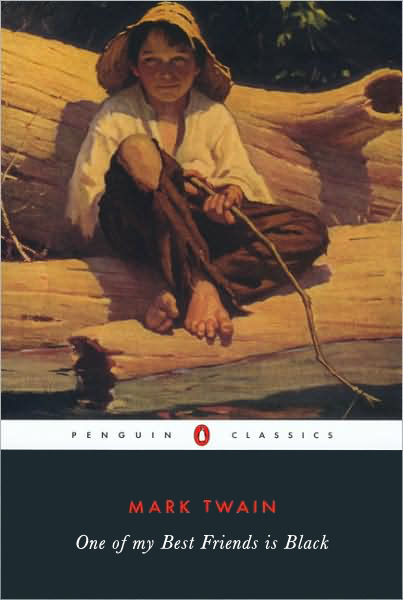 In case you haven't heard, Mark Twain's "The Adventures of Huckleberry Finn" is being censored. All uses of the word "nigger" are going to be replaced with "slave".
In case you haven't heard, Mark Twain's "The Adventures of Huckleberry Finn" is being censored. All uses of the word "nigger" are going to be replaced with "slave".I think it is time to chime in, but I'm almost at a loss for words.
Luckily, in an interview with The Guardian, Dr. Sarah Churchwell, senior lecturer in US literature and culture at the University of East Anglia, sums up my feelings almost perfectly:
"The fault lies with the teaching, not the book. You can't say 'I'll change Dickens so it is compatible with my teaching method'. Twain's books are not just literary documents but historical documents, and that word is totemic because it encodes all of the violence of slavery. The point of the book is that Huckleberry Finn starts out racist in a racist society, and stops being racist and leaves that society. These changes mean the book ceases to show the moral development of his character. They have no merit and are misleading to readers. The whole point of literature is to expose us to different ideas and different eras, and they won't always be nice and benign. It's dumbing down."
Within her quote, I've bolded what I believe is the best argument to keep the 'n-word' in the books. Which also brings me to what I believe is the weakest argument by the new version's editor, Twain scholar Dr. Alan Gribben.
In the same article with The Guardian, Gribben says one reason the change was necessary came from his own teaching experiences. According to the article, Gribben said "he had found himself recoiling from uttering the racial slurs in the words of the young protagonists" while reading the text out loud.
 |
| Image via Better Book Titles |
But I think that's a good thing. I never have and never will use the word outside of this context. I don't use it as slang or a joke or in any conversation unlike this one, but I think that struggle, the stumbling over the word, the almost whispering it the first time you come across it on the page, is part of the experience of reading "Huck Finn". It is almost an embarrassment, the first time you have to read it out loud. You're uncomfortable; you can't believe it was so easily thrown around to degrade other human beings at such an extreme level.
But to understand the story, to understand the time period and the disgusting reality of racism and slavery, you need to keep Mark Twain's text intact.
If you own a copy of "The Adventures of Huckleberry Finn", I encourage you to flip through it and find a single passage where the word "slave" is an appropriate substitute for the word "nigger". It won't hold the same meaning, harshness or relevance to the time period.
Really, we shouldn't even be having this conversation.








1 comments:
This really upsets me too. I read Huck Finn in 9th grade, obviously knew about slavery and had covered it in school, but yet I felt like the idea of slavery hadn't truly hit me until my freshman year of college when I took an African American Lit course and read some of the darker slave narratives. You know, the ones that described rape, and then being beaten for having been raped.
Then I started to think about how the idea of slavery as a part of our very short history had become somewhat naturalized for me. I think it had to do with my first introduction to slavery being in second grade. I distinctly remember learning about Harriet Tubman and the Underground Railroad. I don't think kids should be learning about slavery that early, since inevitably 8-year-olds need a whitewashed version of what happened. Reading Huck Finn in high school is a good introduction, but the dehumanizing elements are key.
You cannot have a proper perspective on the significance of having a black president, the aftermath of Hurricane Katrina, or any historical event in African American history without an honest understanding of slavery.
Post a Comment